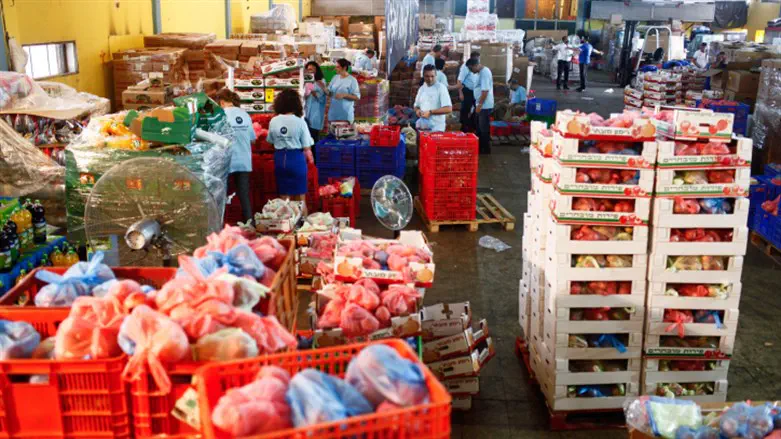
Assistance for six thousand families suffering from severe food insecurity, who are being provided for by the national project for food security, will be severed starting in July. The reason is essentially technical, but for these families is a critical blow.
According to Israel Hayom, the project's main problem is that its budget is based on coalition funds. In the State Budget for 2023 to 2024, the project has been allotted 90 million NIS for the year, the same as the previous year.
Together with the 15 million NIS from the local authorities, and 45 million NIS from Eshel Chabad (the operator of the project) and the International Fellowship of Christians and Jews, the yearly funding totals 150 million NIS, which suffice to assist only 26 thousand families a year.
The project began operating in July 2022, while MK Meir Cohen (Yesh Atid) was Welfare Minister, but since identifying the needy families took time, extra funds remained, and so the Finance Ministry ordered expansion of the project to additional families. As a result, 32 thousand families (instead of 26 thousand) have been receiving monthly assistance in the past half year, at a sum of 500 NIS per family.
The Welfare Ministry has warned the local authorities that those same 6000 families which "enjoyed" the excess funds will be removed from the project in July, when the contract ends and the new contract begins.
According to the coalition agreements with the Shas party, the Interior Ministry is supposed to receive a billion shekels, which will be transferred to the local authorities for the purpose of providing food voucher benefits for the needy. Regardless, the process is being held up due to a dispute over the conditions for eligibility for the vouchers, and on account of public criticism that those who met the criteria last time (during the coronavirus pandemic), where primarily haredim.
The concern is that also this round many families who suffer from food insecurity will not meet the criteria, and therefore social activists have called to anchor the project to the basic State budget, instead of solving the crises using discretionary coalition funds, and criteria which are not relevant to the families that need assistance.
The Welfare Ministry issued a public statement, saying, "This is a designated supplement from surplus funds, which is provided several months prior to the local authorities for the sake of providing additional families with assistance for a limited time, until the end of June. The alternative was to include only the original scope of coverage which was initially envisioned, and not to use the surplus funds. As Minister [Yakov] Margi (Shas) committed himself, the projects funding has not been cut, and tens of thousands of supported families will continue to receive aid every single month, just as it was."
